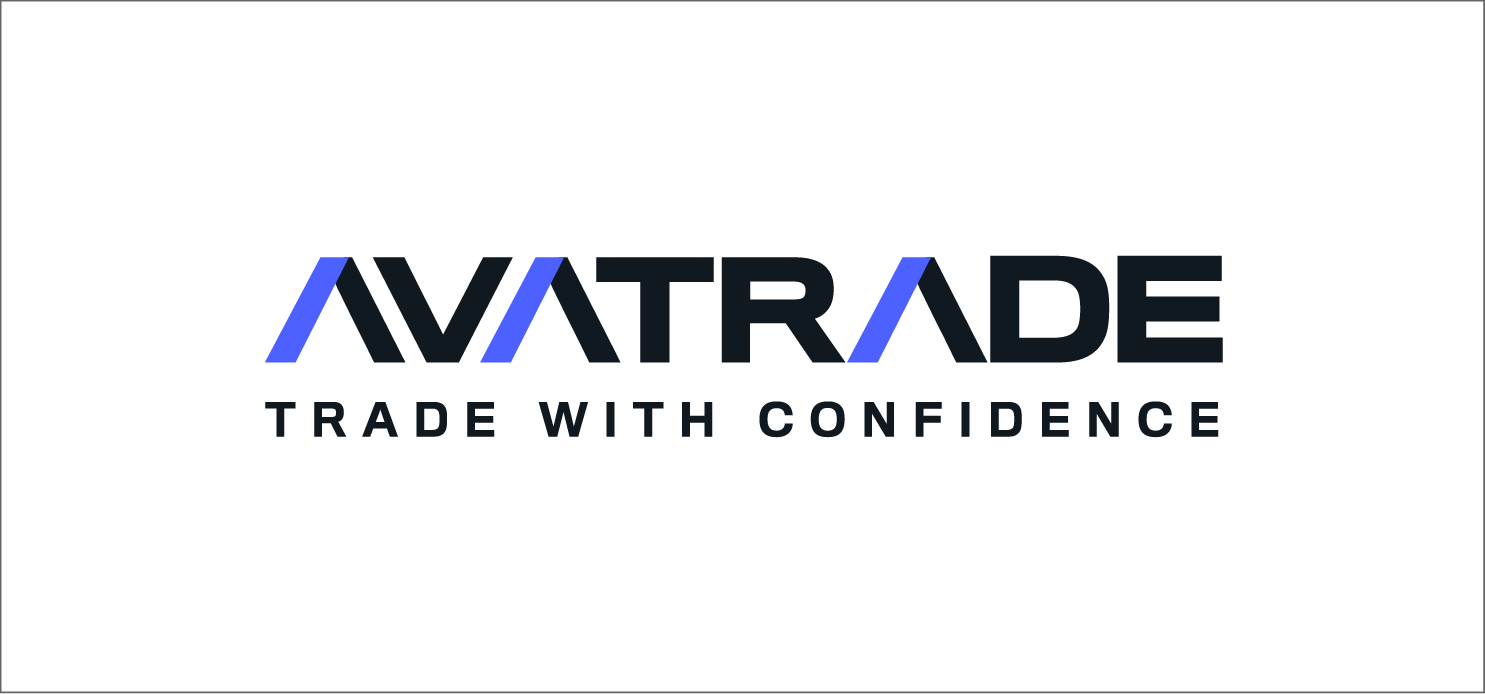Best 6 Stockbrokers in Brazil (2026 Review)
All products and services featured are independently selected by WikiJob. When you register or purchase through links on this page, we may earn a commission.
- A list of the Top Stockbrokers in Brazil for January 2026:
- Comparison Chart of the Best Stockbrokers in Brazil for January 2026
- Description of the Best Stockbrokers in Brazil for January 2026
- What Is a Stockbroker?
- What Are the Different Types of Stockbrokers?
empty
empty
empty
- How Do Stockbrokers Make Money?
- How Are Stockbrokers Regulated in Brazil?
- Tier 1 Authorities
- How to Choose a Stockbroker in Brazil in 2026
- Frequently Asked Questions
- Final Thoughts
A list of the Top Stockbrokers in Brazil for January 2026:
Comparison Chart of the Best Stockbrokers in Brazil for January 2026
Regulation FCA, DFSA, CySEC, BaFIN, ASIC, CMA, SCB | Assets Forex CFDs, Indices, Commodities, Cryptocurrencies, ETFs, Shares | Platforms MetaTrader 4 (MT4), MetaTrader 5 (MT5), cTrader, TradingView | |||
Regulation ASIC, FSCA, FSA, BVI FSC, Central Bank of Ireland | Assets Forex, CFDs, Cryptocurrencies, Stocks (CFDs) | Platforms MetaTrader 4, MetaTrader 5, AvaTrader, WebTrader | |||
Broker IG Group | Regulation FCA, ASIC, CFTC, NFA, MAS | Assets Forex, CFDs, Cryptocurrencies, Stocks (CFDs), Indices, Commodities | Platforms IG Trading Platform, MetaTrader 4 | ||
Regulation FCA, KNF, CySEC, IFSC | Assets Forex, CFDs, Cryptocurrencies, Indices, Commodities | Platforms xStation 5, MetaTrader 4 | |||
Broker Saxo | Regulation FSA, FCA, ASIC, MAS | Assets Forex, CFDs, Stocks, Bonds, Futures | Platforms SaxoTraderGO, SaxoTraderPRO | ||
Broker Interactive Brokers | Regulation SEC, FINRA, FCA, ASIC | Assets Stocks, Options, Futures, Forex, CFDs | Platforms Trader Workstation (TWS), WebTrader, MobileTrader |
There are many stockbrokers in Brazil to choose from. Selecting the right one depends on many factors, including how you want to trade and which assets you would like to trade in.
Description of the Best Stockbrokers in Brazil for January 2026
We've compiled a list of some of the best stockbrokers in Brazil.
This list is based on some key factors to consider when choosing a stockbroker.
When picking a stockbroker to work with, it is advisable to research as many stockbrokers as possible and consider your investment goals thoroughly.
1. Pepperstone
Pros
- Extensively regulated
- No minimum deposit
- Low fees and mostly free withdrawals
- Good customer service
Cons
- No investor protection for clients outside UK, EU and EEA
- Withdrawal fee for international bank wires
- CFDs only
Best for: Traders interested in forex CFDs
Assets and markets: CFDs in forex, indices, shares, commodities, ETFs, crypto
Account types: Standard, Razor, Active Trader Razor, Demo
Pepperstone is an Australian CFD stockbroker, active in the UK and globally. It has created a trading app for each of the platforms it provides – MT4, MT5, TradingView and cTrader.
The Pepperstone cTrader app is recommended for those new to trading or still finding their investment footing. The cTrader app provides the same trading experience that you would experience in the computer version.
Pepperstone offers social copy trading but you may only trade CFDs with this broker.
The standard account is commission-free, whereas Razor account holders are subject to commission charges. There is no minimum deposit, but Pepperstone recommends $200.
Withdrawal fees are charged to customers for international wire transfers.
2. AvaTrade
Pros
- Worldwide regulated
- Multiple platforms – MT4, MT5, etc.
- Negative balance protection
- 20% welcome bonus
- Educational content
- Wide rage of payments methods
- Fixed spreads
Cons
- You can’t buy stocks
- Quarterly and annual inactivity fees
- Custumer support is not available 24/7
- No bonus for EU based clients
- No US clients accepted
- Imitated crypto assets
AvaTrade is a CFD Regulated broker with +1,000 financial instruments and multiple trading platforms. It has been operating since 2006.
It offers a 20% welcome bonus up to $10,000, according to regulation and a free 21-day demo account with $100,000.
Instruments include:
- Metals
- Commodities
- Stocks
- FX Options
- Oil
- ETFs
- Options
- Crypto currencies
- CFDs
- Indexes
- Shares
- Spread betting
- Indices
- Forex
- Bonds
AVATrade EU Ltd is regulated by the Central Bank of Ireland. (No.C53877) Ava Trade Markets Ltd. is regulated by the B.V.I Financial Services Commission. It is also highly regulated in Australia, South Africa, Japan, Middle East, Cyprus and Israel
You can not trade with AvaTrade in the US, North Korea, New Zealand, Iran or Belgium.
Mínimum deposit of $100, no withdraw limit and no fees.
3. IG Group
Pros
- Highly regulated
- MetaTrader 4 (MT4)
- Over 10,000 instruments
- Available in the UK and US
- 24/7 customer support
Cons
- High fees
- No deposit compensation scheme for US accounts
- No copy trading
- Inactivity fees
Best for: Forex trading
Commission: Varies according to asset type
Minimum deposit: $250
Withdrawal fees: $0
Tradable assets: Forex, CFDs, cryptocurrencies
IG is a tier-1 regulated broker in six countries. The IG group offers many types of trading platforms, along with various charting tools and watch lists.
Additional functionality includes:
- Research tools
- Educational resources
- Mobile trading
- Social copy trading
4. XTB
Pros
- Regulated by the FCA
- Low forex fees
- Fast withdrawal and deposit with no fee
- Live chat customer service
Cons
- No US clients
- Limited product portfolio
- High fees for stock CFDs
Best for: CFD and forex trading
Commission: Variable by asset
Minimum deposit: $0
Withdrawal fees: $0
Tradable assets: Stocks, forex, indices commodities, ETFs, cryptocurrencies
Number of stocks: 1,700
XTB is a tier 1 regulated broker platform founded in 2002. Offering mobile, web and desktop versions, it provides comprehensive charting tools and is well known for its 24/7 customer support.
A benefit of XTB is the educational and research tools offered, along with a news feed, which is suitable for all investors.
CFDs are complex instruments and come with a high risk of losing money rapidly due to leverage. 69-80% of retail investor accounts lose money when trading CFDs with this provider. You should consider whether you understand how CFDs work and whether you can afford to take the high risk of losing your money.
5. Saxo
Pros
- Heavily regulated
- Good product portfolio
- Low forex fees
- No withdrawal fee
Cons
- Does not accept US clients
- High fees for options, futures and bonds
- High minimum deposit
Best for: Experienced traders
Commission: Variable by asset traded
Withdrawal fees: $0
Tradable assets: Commodities, indices, shares, futures, forex, bonds, options, CFDs
Number of stocks: More than 19,000
Saxo is a tier 1 regulated brokerage in the UK.
The platform offers many features geared towards experienced investors. These include advanced research facilities, a customizable desktop view and advanced workspace options, where six screens can be used to view trading activity.
There is limited customer service functionality and the platform isn't open to US clients.
6. Interactive Brokers
Pros
- Regulated
- Wide range of offerings
- Low commission
- Socially responsible
- 24/5 customer support across multiple channels
Cons
- No additional platforms
- Inactivity fees
Best for: Experienced investors
Commission: Varies by trade type and the amount traded
Minimum deposit: $100
Withdrawal fees: $0
Tradable assets: Stocks, bonds, options, futures, forex, mutual funds
Number of stocks: 23,000
Interactive Brokers has a wide range of assets that can be traded across multiple global markets.
The platform is offered as a Lite version, with no commission charged on US-listed equity trades.
The Pro version has many research and charting tools, a mobile version and two-factor authentication.

What Is a Stockbroker?
A stockbroker is someone who acts as the middle person between you and the stock market.
They trade assets, such as stocks and shares, on your behalf and look after your portfolio of investments.
Advances in technology have meant that the world of stockbroking has moved on from the more traditional way of doing things.
Nowadays, stockbrokers work with clients in different ways:
- Discretionary stockbroker – Takes full responsibility for their clients’ investments. They are managing the investment decisions, as well as making trades.
- Advisory stockbroker – Shares their knowledge and expertise to advise clients on the best investment decisions. Clients have the responsibility for making the final decision. Once authorized, the stockbroker will then execute their decision.
- Execution-only stockbroker – Do not offer advice or manage a client's investment portfolio. They buy and sell trades on the stock market only – i.e. execute their clients’ investment decisions.
What Are the Different Types of Stockbrokers?
If you decide to work with a stockbroker, it is vital to understand the different types.
It’s also important to consider:
- How involved you want to be when it comes to trading on the stock market
- Whether you want to learn about how the stock market works
There are three main types of stockbrokers that individuals and organizations can work with.
Full-Service Stockbroker
A full-service stockbroker provides a comprehensive brokerage service to their clients. They take full ownership of a client's investment portfolio, researching, giving guidance to clients, managing their clients’ investment portfolio and executing the trades.
This type of brokerage will keep the client regularly informed of how their investment portfolio is performing.
Discount Broker
A discount broker is a brokerage service that executes trades on their clients’ behalf. This type of broker service does not offer any advice, planning or research on investment decisions or portfolios.
Online Broker
Online broker services enable investors to manage and execute trades themselves. Online brokerages often include research, planning and educational tools as part of the service.
These services mean that new and experienced investors can learn more about markets, types of trades and trading strategies.
How Do Stockbrokers Make Money?
Stockbrokers make money in different ways, depending on the type of brokerage service offered.
Some will take a commission on the investments made. Others charge fees based on the type of asset or the amount traded.
How Are Stockbrokers Regulated in Brazil?
The Brazilian stock exchange is regulated by the Securities and Exchange Commission of Brazil (Comissao de Valores Mobiliarios, or CVM). The CVM is responsible for the legal and transparent trading on the Brazilian stock market.
One of the most popular assets to trade on the Brazilian stock market is foreign exchange (forex).
It is recommended that the CVM authorizes Brazilian forex brokers to trade, although this is not a requirement. If you are looking to work with a reputable CVM-approved stockbroker, or if you want to check that a particular broker is CVM-authorized, it is advisable to contact the CVM.
The Brazilian Central Bank (BCB) also has responsibility for supervising and licensing forex brokerage services in Brazil. Under the BCB, all forex brokers need to be licensed by the BCB to trade forex in Brazil.
Tier 1 Authorities
Some investors choose to work with an international brokerage regulated under tier 1 authorities.
There are many benefits of choosing a broker regulated under a tier authority. Tier 1 brokers are deemed trustworthy, as they have to adhere to strict rules and procedures as governed by tier 1 authorities.
Some or all of the investor's assets are also protected should the brokerage go bankrupt. In addition, the investor's funds are segregated, so the broker has the funds to pay an investor should they wish to withdraw their funds.
Tier 1 regulated brokers also abide by strict trade rules governing trades and anti-money laundering rules.
How to Choose a Stockbroker in Brazil in 2026
To select the right stockbroker for your needs, you should consider different factors:
Step 1. Know What You Need
Different stockbrokers offer different assets to trade in.
Know which assets you want to trade in and which funds you have available to trade. Think about the sort of broker service you want – whether you want someone to take full ownership of your investments, or whether you are happy to learn about investing strategies so you can manage your investments.
If you are an experienced investor, looking at the additional functionality, research capabilities and tools from a brokerage is also something to consider.
Step 2. Listen to Other Investors
Once you have established what you need from a brokerage firm, it is always advisable to speak to other investors to get their views.
Knowing the reputations of the brokers who offer the services you need and those to avoid means you can be confident in your choice.
Step 3. Make Sure Your Stockbroker Is Regulated
Work with a trustworthy stockbroker that is regulated. Tier 1 regulated stockbrokers are governed by strict trading rules, so you can have confidence in how your assets are traded.
Step 4. Ensure Your Broker Has Adequate Security
Many online brokers offer additional layers of security, such as two-factor authentication, providing extra protection for your brokerage account, investments and funds.
Step 5. Check Your Broker Offers Segregated Funds
Reputable brokers offer segregated funds. That is, the brokerage keeps an investor's funds separate from those of the broker. Your funds are protected should the broker go bankrupt.
Step 6. Find Out Which Assets They Have for Trading
Stockbrokers trade in different assets – for example, some trade in forex, others trade in contracts for difference (CFDs).
Know which assets you want to trade in so that you pick a stockbroker who offers trading services in these assets.
Step 7. Know the Trading Fees
Trading fees and commissions charged vary by stockbroker. Some brokers also charge account opening fees, withdrawal fees and currency conversion fees.
Knowing what fees your broker service charges means that you can manage these additional charges on your account or broker services.
It can also allow you to pick an affordable broker for your requirements.
Step 8. Know Which Trading Platform You Want to Use and Why
There are a variety of different trading platforms available to investors who want to manage trades themselves.
Determine what you are looking for from a broker platform according to the level of investment experience you have and your short- and long-term investment goals.
Step 9. Know Which Tools Your Trading Platform Offers
Each trading platform offers investors a variety of different tools and functionality. It’s worth considering:
- How good are the analytical tools? For example, does the platform offer charting tools?
- For less experienced investors, does the trading platform offer social copy trading?
- Does the trading platform come with educational resources, such as investment strategies for specific assets?
- Is there specific mobile functionality included?
Knowing what you want from a trading platform will help you determine which tools you need from it.
Step 10. How Good Is the Customer Service?
Customer support is useful in a trading platform. Not all stockbrokers offer this facility, and opening hours can vary from platform to platform.
Before choosing a trading platform, it is worthwhile to find out:
- Whether customer service is offered by the trading platform
- Operating hours of customer service
- How to contact them (email or phone)
- The response time
- Is there a dedicated technical support helpline?
A stockbroker is a financial professional or company that facilitates the buying and selling of stocks, bonds and other securities on behalf of investors.
They act as intermediaries between investors and stock exchanges and provide various investment services such as market research, investment advice and asset management.
The best stockbroker in Brazil will depend on individual preferences and investment goals. Some of the top stockbrokers in Brazil include XP Investimentos, Clear Corretora, Easynvest, Modalmais and Rico Investimentos.
When choosing a stockbroker in Brazil, you should consider factors such as reputation, fees and commissions, trading platform and tools, investment products offered, customer service, and regulatory compliance.
Stockbrokers in Brazil typically charge fees and commissions for services such as buying and selling securities, account maintenance and account transfers.
These fees and commissions can vary among brokers and may include fixed fees, percentage-based fees and other charges.
Stockbrokers in Brazil allow investors to trade various securities such as stocks, bonds, exchange-traded funds (ETFs), futures, options and foreign currencies.
The best stockbroker in Brazil for a beginner will depend on the investor's specific needs and goals.
Brokers that offer educational resources, user-friendly trading platforms and low fees and commissions may be ideal for beginners.
Some top choices for beginner investors in Brazil include XP Investimentos, Easynvest and Clear Corretora.
To open an account with a stockbroker in Brazil, you need to provide personal information such as your ID, address and tax identification number.
The process usually involves filling out an application, providing documentation and sometimes completing a suitability questionnaire. Some brokers may also require a minimum deposit to open an account.
Like any investment, there are risks associated with trading with stockbrokers in Brazil. These can include market risk, currency risk, liquidity risk and political risk, among others.
It's important to understand these risks and to have a diversified portfolio to help manage them.
Stockbrokers in Brazil are regulated by the Brazilian Securities and Exchange Commission (CVM), which oversees the securities markets and regulates market participants, including brokers.
Brokers must comply with a set of rules and requirements to operate in the market and protect investors.
Common mistakes to avoid when trading with stockbrokers in Brazil include not doing enough research, not having a clear investment strategy, letting emotions guide decisions and not paying attention to fees and commissions.
It's important to have a clear understanding of the risks and potential rewards of each investment and to have a plan in place.
To learn more about trading with stockbrokers in Brazil, you can consult with a financial advisor, attend seminars and workshops, read books and articles, and practice with a demo account.
It's important to continue learning and staying informed about the markets and your investments.
Final Thoughts
With many stockbrokers to choose from, each with its pros and cons, choosing the right one can seem daunting.
Thinking about what you want from a stockbroker, the funds you have to invest, what you want to invest in and what type of service you want can help to narrow down your choices.
Doing your research and due diligence means that you will choose a reputable stockbroker that meets your short- and long-term investment needs.
WikiJob does not provide tax, investment or financial services and advice. The information is being presented without consideration of the investment objectives, risk tolerance or financial circumstances of any specific investor and might not be suitable for all investors. Past performance is not indicative of future results. Investing involves risk including the possible loss of principal.












